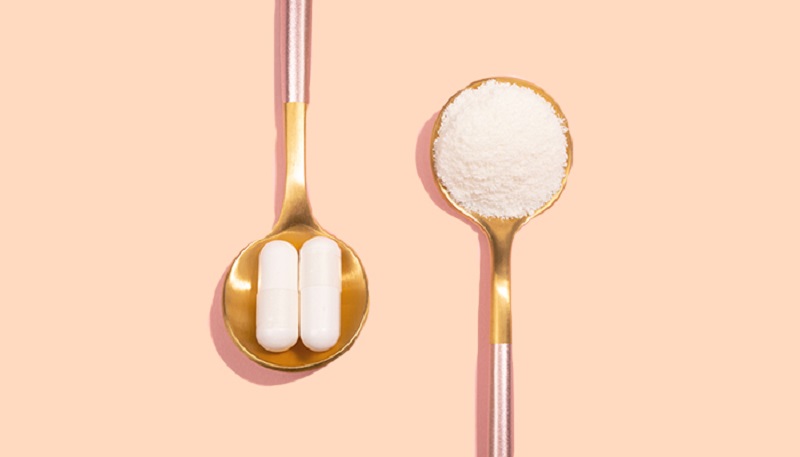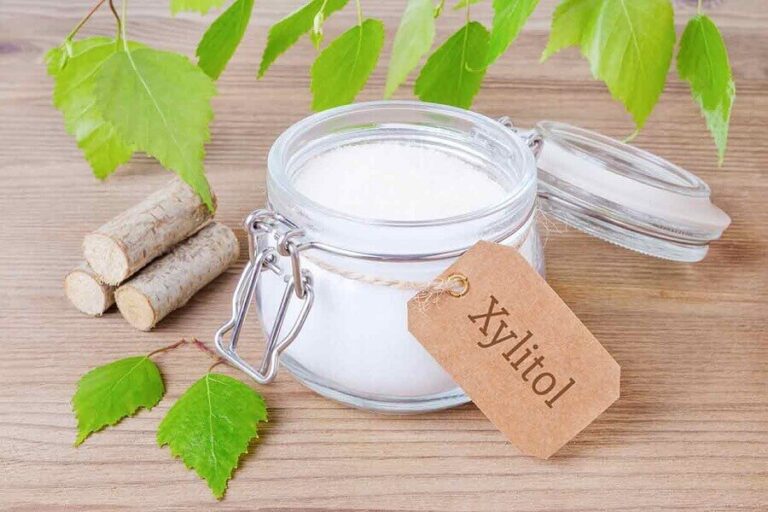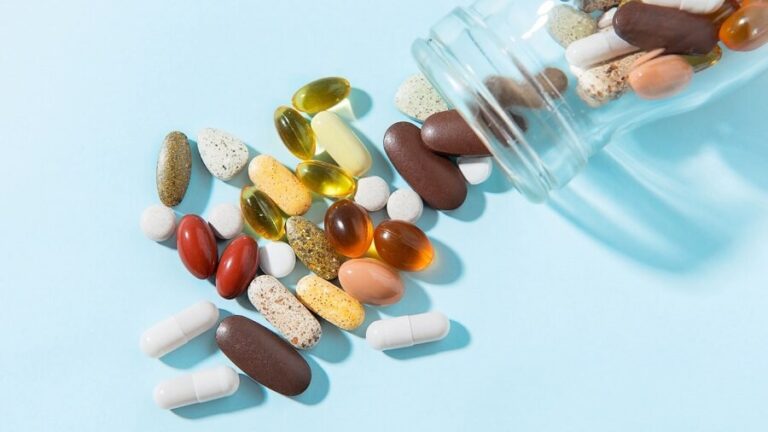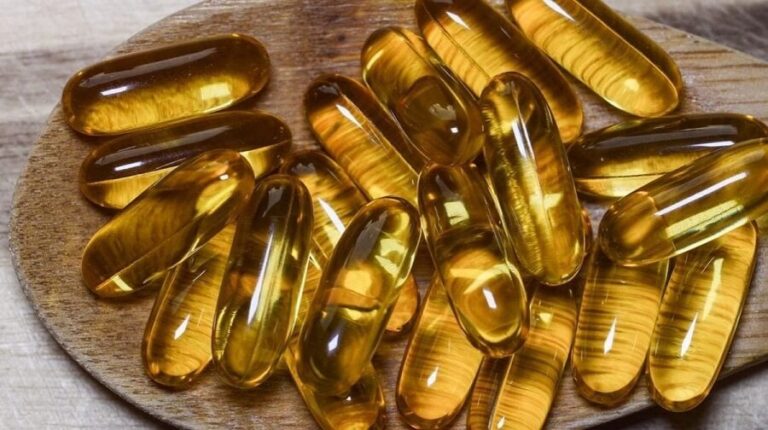Collagen is the main extracellular structural protein that forms the connective tissues of the human body and mammals. The total volume of collagen in the body reaches 25-40% of the total amount of proteins¹. It is collagen that makes up the skeleton, tendons, cartilage, and part of the bones.
For these reasons, collagen is found in many foods of animal origin (especially those made from meat, cartilage, and animal skin), such as gelatin. Supplement manufacturers claim low collagen absorption rates, so only supplements work. However, this is not entirely true. This article describes the main points about collagen and how much we know about whether or not collagen supplements work.
What is collagen, and what is it for?
Collagen is a complex multimolecular protein that forms a triple helix. Even though collagen was discovered in the 1930s, scientists could not determine its exact structure for a long time, and the importance of the molecule was unknown to the general public.
Collagen has excellent mechanical resistance and is the main component of cartilage, ligaments, tendons, bones, and teeth. Together with keratin, it is responsible for the strength and elasticity of the skin, strengthens blood vessels, and plays a vital role in the development of tissues.
In addition to its structural function, collagen also fulfills other roles in your body. For example, when exposed to the immune system, it can serve, in certain circumstances, both as a trigger for the production of antibodies and as a target for the recognition of tissue damage. 5
About 30 different forms and types of collagen are known, differing in structure and function. The predominant type in the human body is type I, which is the most resistant.
The illustration above shows the structure of the skin of a person of different ages schematically. Collagen is indicated by pink dotted designs; related elastin – in solid red lines; hyaluronic acid – light purple spheres.
After age 25, the body loses about 1-1.5% collagen annually¹. At 35, the body lacks 10-15% of this building protein (compared to young age); at 45 – about 30-35%. The formation of wrinkles is mainly due to the loss of collagen.
Collagen is:
- the main protein of the skin and connective tissue
- up to 25-40% of the protein mass in the body
- the type of fibrous proteins whose functions are rather structural
- very stable and resistant, but its natural synthesis deteriorates with aging
How and where is it formed?
Collagen synthesis is a multi-step enzymatic process that requires the supply of a sufficient amount of vitamins and microminerals. For example, vitamin C deficiency causes defective collagen formation; These changes are the basis for the development of scurvy disease.
Since collagen is part of the skin, connective tissue, and many internal organs, it is produced in special fibroblast cells throughout the body. Fibroblasts are also necessary for the formation of elastin, another essential connective protein for tissues.
Where is collagen found?
In addition to supplements, collagen is found in food, with bone broth being the richest source. Collagen is found in high amounts in almost all animal products made from cartilage, animal skin, or meat. Regular consumption of foods with natural collagen is an essential step in improving skin health and preventing joint diseases.
Among other things, collagen is found in gelatin, gummies, and similar products. Depending on the preparation, gelatin can contain up to 10% of said protein in its composition² (more than 80% of the mass is water), a significant proportion.
Where is collagen found :
- gelatin
- bone broth
- animal meat
- fruits of the sea
- gelatin (algae)
RELATED:
The assimilation problem
The body cannot absorb collagen in its complete form. This means that collagen proteins must be broken down into smaller peptides or amino acids before they can be absorbed.
Since collagen is produced by our body from amino acids and cannot be absorbed in its complete form, plant and animal protein sources can provide the raw materials necessary for proper collagen production.
Interestingly, we cannot decide where collagen peptides (from a supplement or food) end up in our bodies. These peptides could be used to create collagen, but they could also be used for other proteins. Our bodies are bright this way: they prioritize the most urgent needs.
Let us remember that not only amino acids or protein building blocks are needed for collagen synthesis. But also a series of vitamins and minerals act, for example, as enzymatic cofactors. Studies have shown that the simultaneous consumption of supplements, calcium, and vitamin C increases natural production by approximately 20%. 3
Do collagen supplements work?
Collagen supplements are generally hydrolyzed and broken down into peptides of two or three amino acids to increase bioavailability.
However, although most of the information on collagen strongly recommends taking supplements, stating that natural is absorbed much worse than hydrolyzate, the existing scientific research on this topic is not as decisive.
For example, measurements of blood levels of the vital amino acids that make up collagen after ingesting it in its natural form through food versus its hydrolyzed form through supplements show a difference of approximately 20-25%. 4 That is, dietary sources of collagen from food are significantly less than hydrolyzed collagen but comparable to much more expensive supplements.
So collagen supplementation may be helpful for specific populations; however, as with many nutritional trends, its overall benefit has likely been overstated by the media.
Despite the promising results in small research studies, it remains uncertain whether the benefits found were specifically from a collagen supplement or whether adequate protein intake would have achieved similar results.
ABSTRACT
Collagen is a critical protein in humans and mammals. It is found in large quantities in all-natural products derived from animals’ meat, bones, and skins; even though supplement manufacturers claim lower quality food sources, the net difference is not that great.
While supplementation may not be harmful, adequate-protein intake (from plant and animal sources) should provide enough amino acids to synthesize enough collagen without a supplement. If you are having trouble getting enough protein in your diet, find a registered dietitian in your area to help you find the food options that work best for you.







